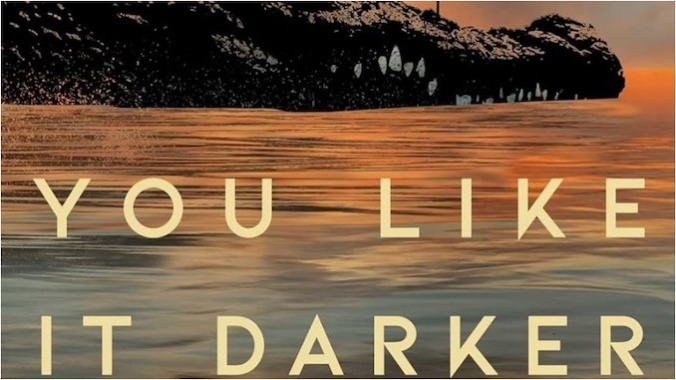You Like It Darker is a Wondrous Collage of Stephen King Storytelling

For all his success as a novelist, Stephen King has never lost his love of short stories, or his advocacy for short-form writing as a powerful vehicle for horror fiction. It would be easy to let such a skill grow stale, or at least turn wistful with age as King remembers the early years when short story sales were often what kept his family afloat, but in collection after collection, the legendary horror master just keeps revealing that he’s in it for more than a quick jolt of nostalgia. The engine of his imagination still thrives in this space, and You Like It Darker is proof.
King’s latest collection—his twelfth over the last five decades, and third in 10 years—collects a dozen stories, many of them brand-new to King readers, which cross genres, styles, and concerns to reveal a broad and vivid tapestry of the legend’s interests. They run the gamut from novella-length supernatural fiction and Southern Gothic glimpses to high-concept ventures into the unknown. In “The Turbulence Expert,” King imagines a world in which uniquely gifted individuals keep troubled planes in the sky. In “The Red Screen,” he shows us alien conspiracies by way of marital tribulation. In “The Fifth Step,” we get a brief peek into a particularly dark addiction recovery journey, while “On Slide Inn Road” offers a nod to the fiction of Flannery O’Connor with its grotesque depiction of backroads mayhem.
Whether he’s working over the course of just 10 pages or pushing things into novella territory (another shorter form fiction space in which he’s always prospered), King’s present-day concerns are made plain by the themes he’s mining. “Two Talented Bastids,” the collection’s opening story, is both a reflection on the mercurial nature of creativity and a depiction of the ways in which aging opens us up to new possibilities. “Willie the Weirdo” focuses, through the eyes of one very strange child, on the darkness of mortality and a pure confrontation with impending death. “The Answer Man,” the book’s closer, plays with our own attempts to lay out a clear future for the ones we love and explores how destiny warps the longer we try to stare it in the face.
The effectiveness of these stories, of course, varies, as does King’s approach to each of their thematic concerns, sometimes horrific, sometimes fantastical. In some, he’s playing with tones that remind the reader of Ray Bradbury, in others Richard Matheson, and in still more, John Cheever, all masters of the form. King too, is a master of the short story, and the sheer variety of textures and tones he’s playing with in this book, however tentatively in some cases, is proof of that expert level of skill.
-

-

-

-

-

-

-

-

-

-

-

-

-

-

-

-

-

-

-

-

-

-

-

-

-

-

-

-

-

-

-

-

-

-

-

-

-

-

-

-








































